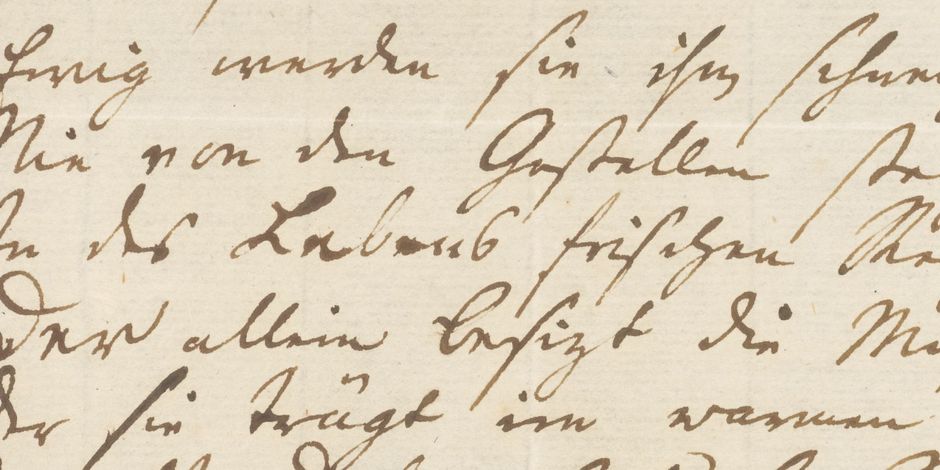Projects of the Klassik Stiftung Weimar are funded by the European Regional Development Fund (ERDF) and the Free State of Thuringia, represented by the State Chancellery of Thuringia, Department of Culture and the Arts.

Edition projects
PROPYLÄEN
As part of the 2015 academy programme of the Union of German Academies of Sciences and Humanities, the joint project “PROPYLÄEN. Research platform on Goethe’s biographical works” was established by the Klassik Stiftung Weimar, the Digital Academy of Mainz and the Saxon Academy of the Sciences and Humanities in Leipzig. The project is slated to run for 25 years, and the project’s offices are located at the Goethe- und Schiller-Archiv in Weimar and the Freies Deutsches Hochstift in Frankfurt am Main.
Johann Wolfgang Goethe. Correspondence with Friedrich Wilhelm Riemer (Hybrid Edition)
The central focus of this project is the publication of Goethe’s correspondence with Friedrich Wilhelm Riemer (1774–1845), one of his closest colleagues and confidants. The body of correspondence, which dates back to 1803 and continued until Goethe’s death, comprises some 430 letters. This project will provide access to these letters in a print and online edition for the first time.
“Faust” Project
This project is producing an historic-critical edition of Goethe’s “Faust” which combines a modern facsimile edition with an innovative genetic apparatus in an electronic medium.
Schiller National Edition
Established in 1943, the “Schiller National Edition” is the oldest, historic-critical edition of Schiller’s complete works which is still being updated and expanded at the Goethe- und Schiller Archive today. The edition includes all correspondence and discussions, letters to Schiller and documents connected to Schiller’s life. The Klassik Stiftung Weimar finances an editorial staff member who is specifically responsible for managing the project.
Edition of Herder Letters
A complete, annotated, scientifically-founded edition of letters by Johann Gottfried Herder. The edition also contains all of the existing letters written by his wife Karoline Herder from 1773 and 180
Heinrich Heine Secular Edition
A complete edition of Heine’s works published regularly since 1970. The Secular Edition also contains correspondence and historic documents related to his life.
Weimar Arnim Edition
With the exception of the song collection “Des Knaben Wunderhorn” (“The Boy’s Magic Horn”), which Arnim produced together with Brentano, this edition includes everything that Arnim wrote: his complete works, writings, pocket books and published journals and texts about literary-political activities.

